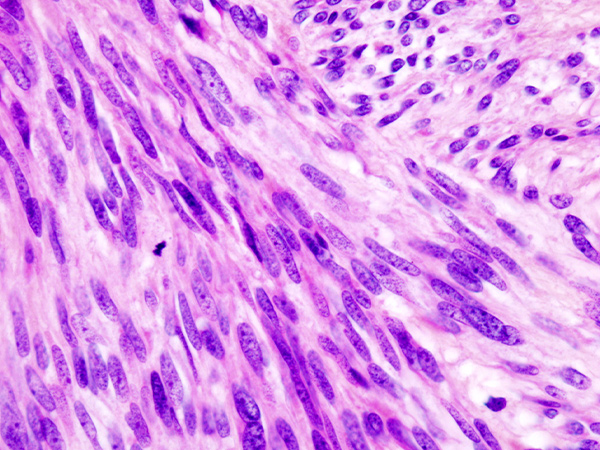Increasing Treatment Options for Gastrointestinal Stromal Tumors
The FDA has approved a new molecularly targeted therapeutic for treating certain patients who have advanced gastrointestinal stromal tumors.

The U.S. Food and Drug Administration (FDA) has approved a new molecularly targeted therapeutic called ripretinib (Qinlock) for treating adult patients who have advanced gastrointestinal stromal tumors (GIST) that has progressed despite treatment with three or more other molecularly targeted therapeutics, including imatinib (Gleevec).
GISTs are a rare type of cancer. According to the National Cancer Institute, approximately 3,000 to 6,000 people are diagnosed with GIST each year in the United States. Most cases of GIST are fueled by mutations in either the KIT gene or the PDGFRA gene.
Research has shown that ripretinib targets the proteins generated as a result of KIT or PDGFRA gene mutations. It was approved for treating GIST after it was shown in the randomized, phase III INVICTUS clinical trial to increase the time to disease progression compared with placebo. The median progression-free survival was 6.3 months among the patients who received ripretinib compared with 1.0 month among those who received placebo.
Patients who received ripretinib also had improved survival. The median overall survival among those who received ripretinib was 15.1 months compared with 6.6 months among those who received placebo.
The FDA approval was rendered on May 15, 2020.
